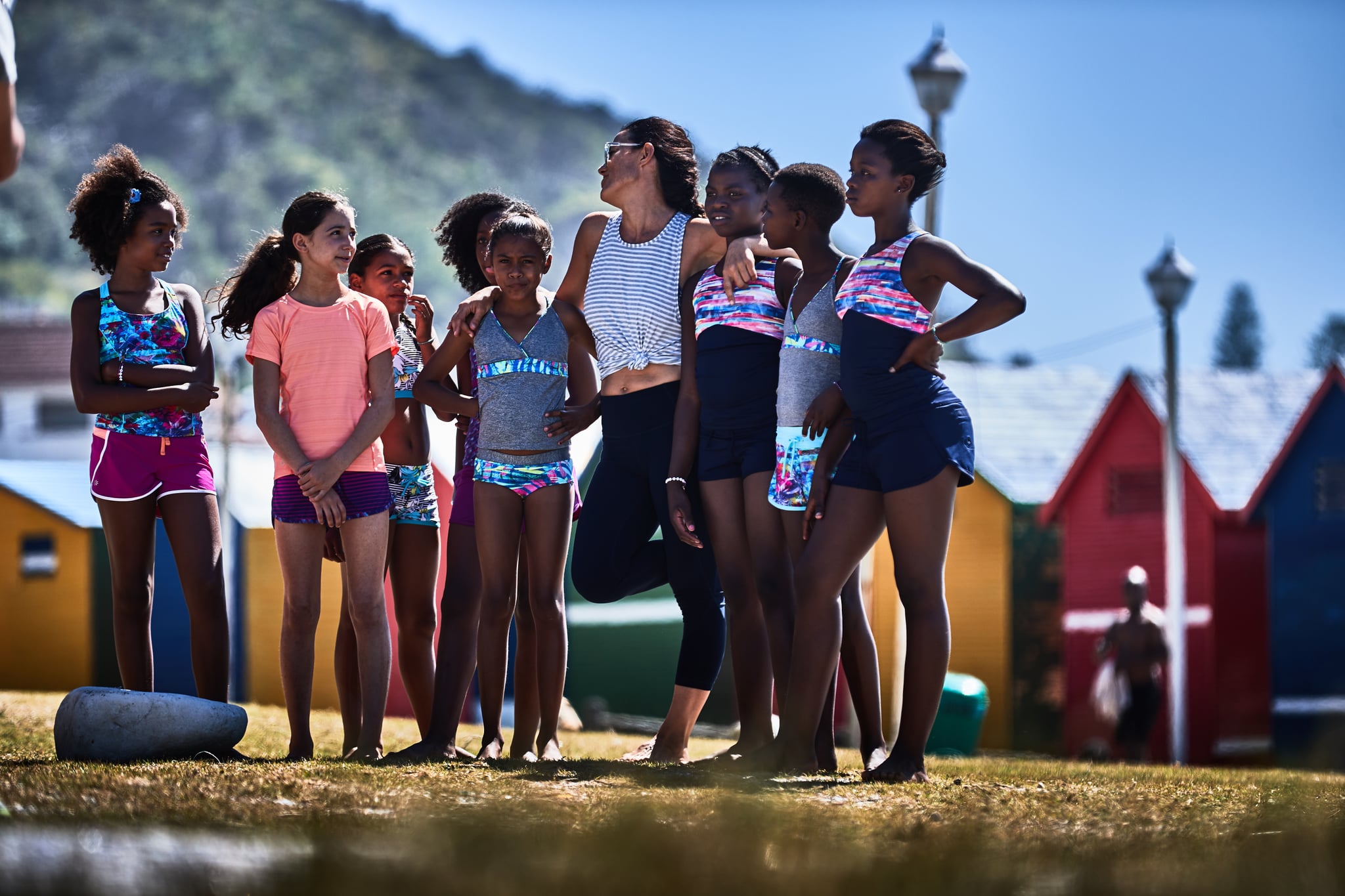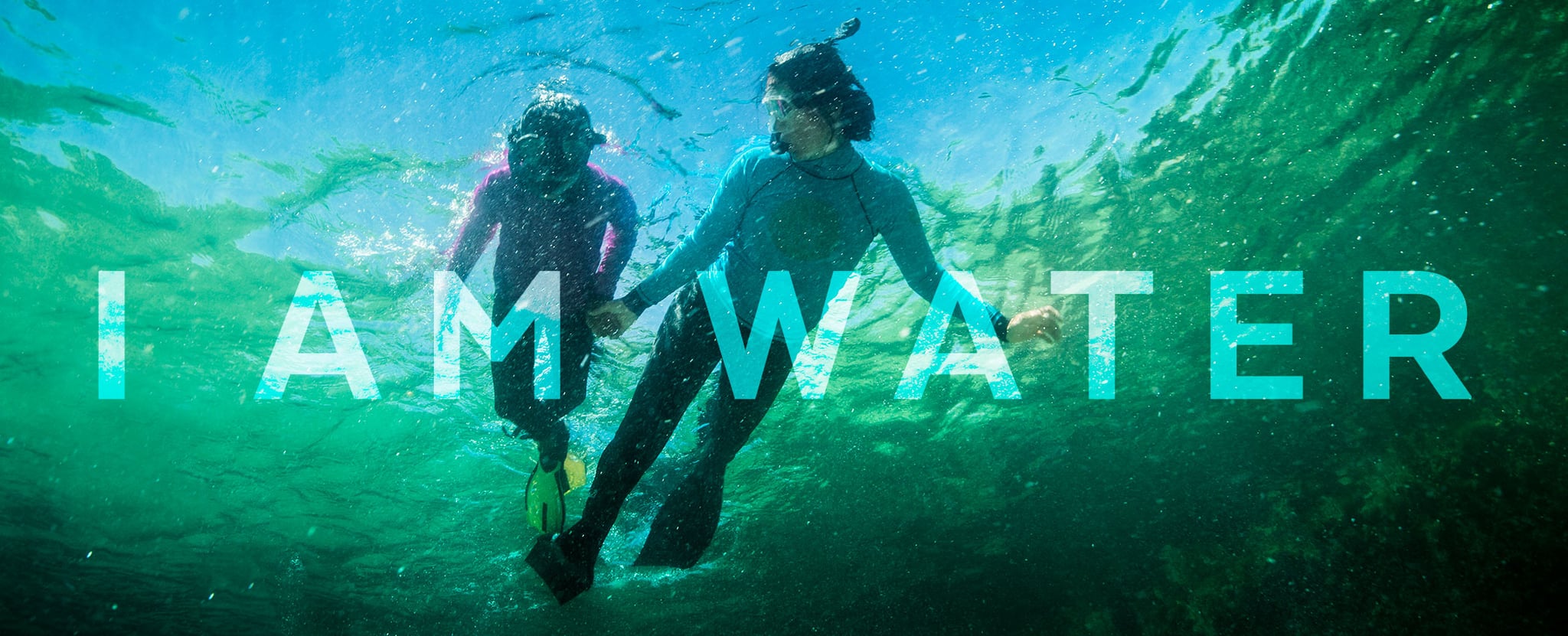
I AM WATER Hanli Prinsloo Profile
How a Champion Freediver Is Empowering Girls to Realize Their Limitless Potential

Imagine diving more than 200 feet into the deep waters of the ocean on one single breath. That's what South African Hanli Prinsloo did when she secured one of her many records for freediving. For the uninitiated, freediving is a sport unlike any other. Athletes compete to see how far they can dive while holding their breath. Turns out, Hanli can go really deep. During her time as a freediver, she broke 11 South African records and became the first South African to hold all six free diving records at the same time.
Not content with being a real-life mermaid, Hanli turned her love of water into a thriving non-profit. In 2010, she founded the I AM WATER Ocean Conservation Trust, which is dedicated to protecting our oceans through education. Hanli believes a human disconnect from water fundamentally leads to ocean degradation and that exposing more people to the oceans will help both our environment and those who get to experience water's healing and empowering qualities. Working with freedivers and marine experts, I AM WATER provides memorable ocean experiences for underprivileged coastal communities, especially girls. Many times, it's the first time these girls have been in open water — and it changes how they see the ocean and themselves.
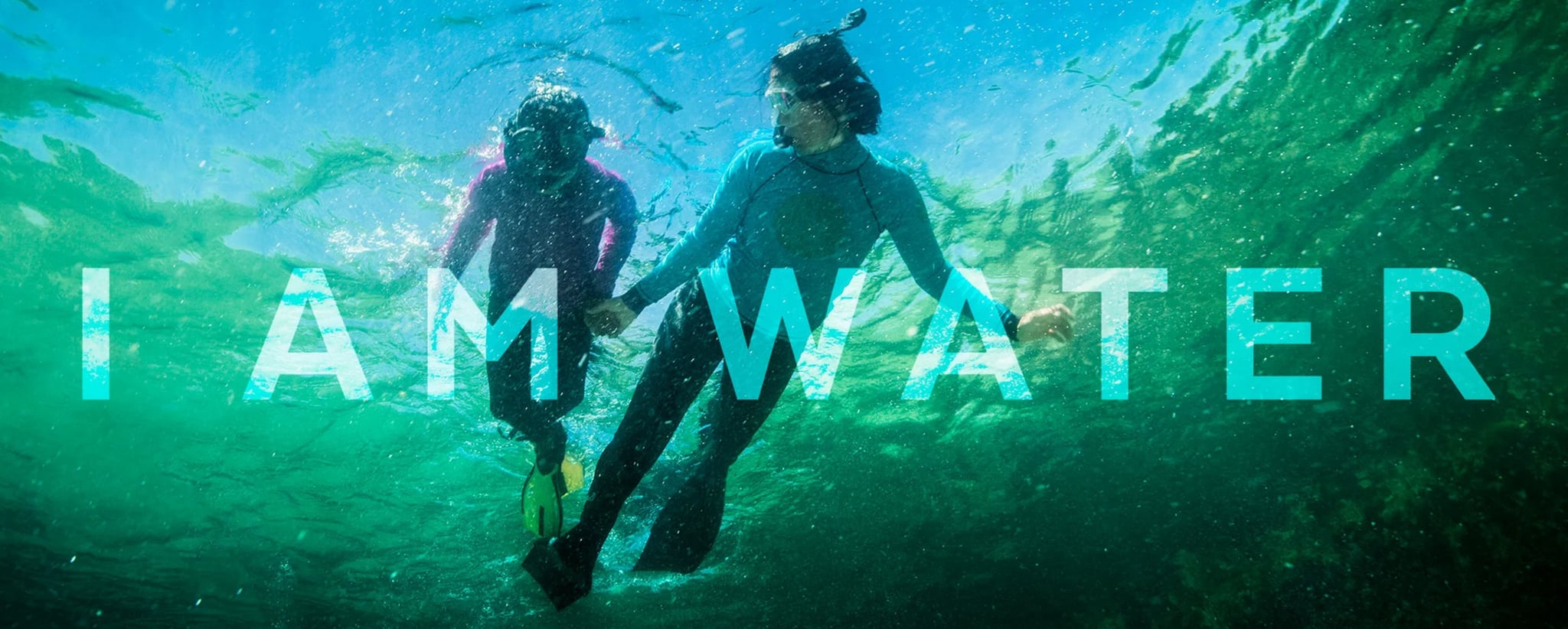
Becoming a Champion Freediver
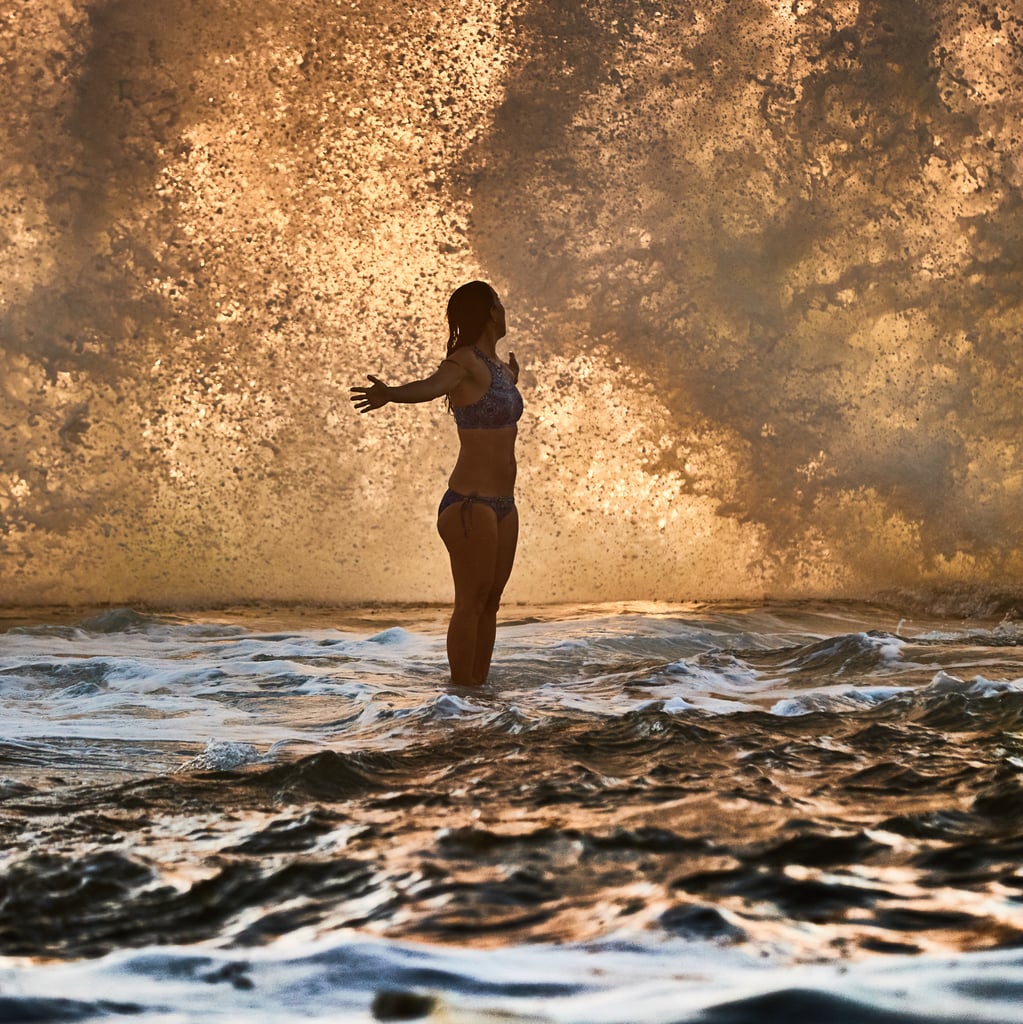
Since as far back as she can remember, Hanli loved swimming underwater. Unfortunately, she didn't live near the ocean. "Growing up on a horse farm wasn’t the best place for a little girl with mermaid dreams," Hanli tells us. Without access to the ocean, Hanli would go below the surface of her farm's dams and rivers. While attending university in Sweden, Hanli met a newly converted freediver who invited her into a small row boat and onto a vast fjord. "I took a deep breath at the surface and swam down to a rocky ledge on the side of the submerged cliff and just sat there listening to my heart rate slow down, my thoughts became less." She would go back to the fjord when the weather allowed and soon found herself traveling around the world for competitions.
It takes focus, determination, and athletic ability to be a champion freediver. But that's where the similarities with other competitive sports may end. "In most competitive sports the athlete will psych herself up," explains Hanli, calling this practice a kind of adrenaline-fueled focus that leads to an explosive performance. "In competitive freediving it is all about getting into a really deep state of relaxation before the dive and trusting your own body to make the depth you have set." So how do you prepare to dive hundreds of feet underwater without psyching yourself up? Hanli says it's a slow process of proving to yourself that it's possible. "No matter how many coaches told me ‘you can go deeper’ or ‘you have more in you’ I couldn’t believe it until I proved it to myself." Every week and every month, Hanli would increase her depth and time, until she came to place of "that was easy, I think I can do more." Discovering her unlimited potential required patience and faith in herself — a recipe you can use to accomplish any goal, be it physical, personal, or professional. "In this slow and mindful way," Hanli explains, "I was able to achieve more than I thought possible and sustain these results still today."
Sharing The Power of Water With Others
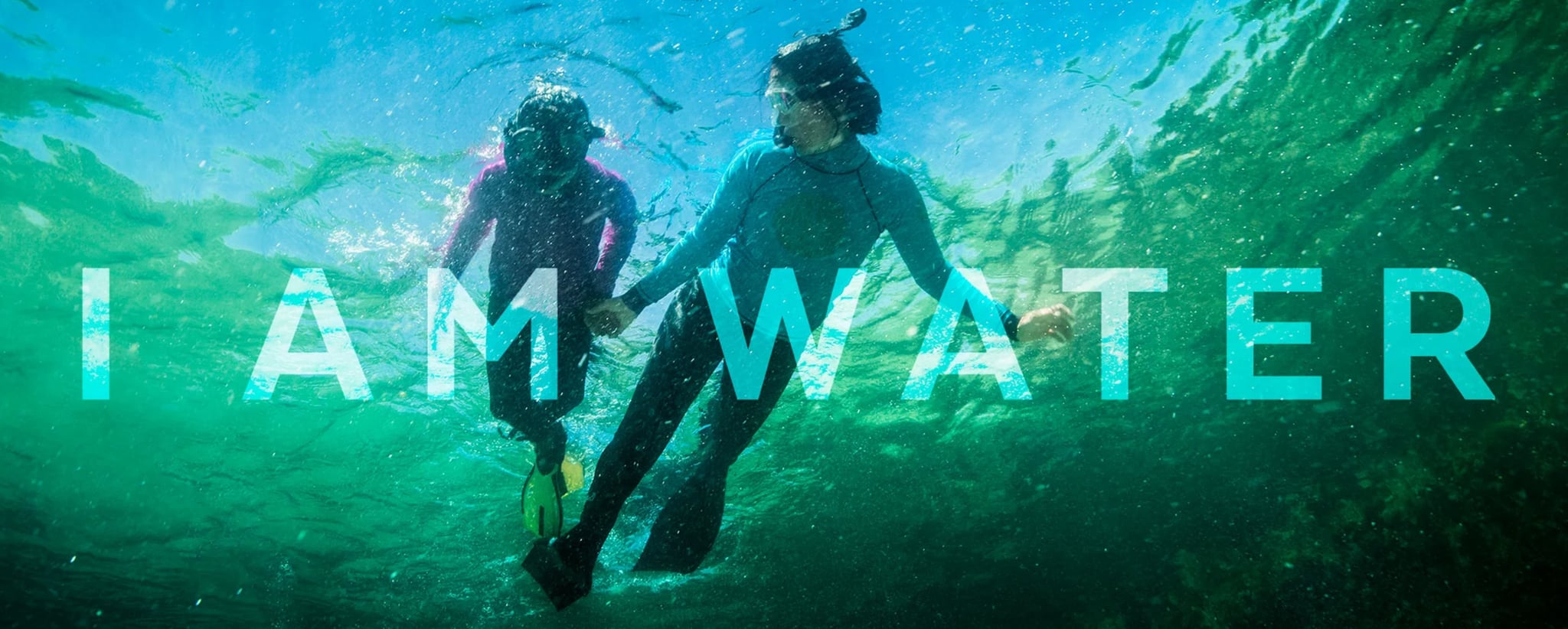
Considering her love of the ocean, it pained Hanli to realize many people like Shireen cannot or will not access it. During her years as a competitive freediver, her travels uncovered a sad reality: "In many of the countries I visited, from my own South Africa to the Maldives, Ecuador, Mozambique, and even the US, I saw a certain demographic enjoying the beach and getting to see what is below the surface of the ocean." But the less fortunate were shut out. "With so many millions of people completely disconnected from their blue backyard how can we ever hope to live in a world where our ocean is protected and where people feel a connection to this wilderness?" In order to bridge that gap, Hanli started I AM WATER.
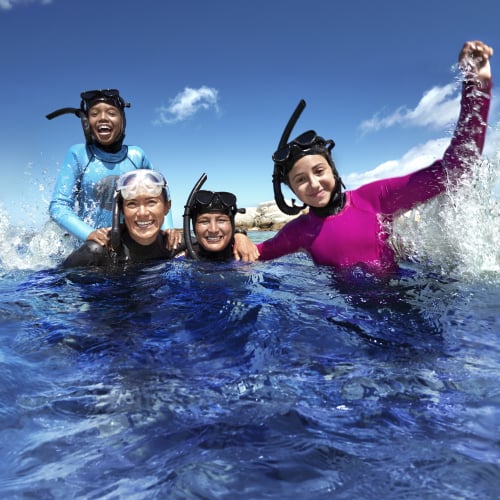
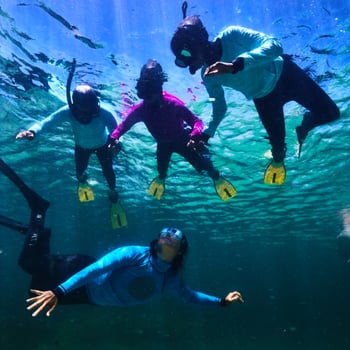
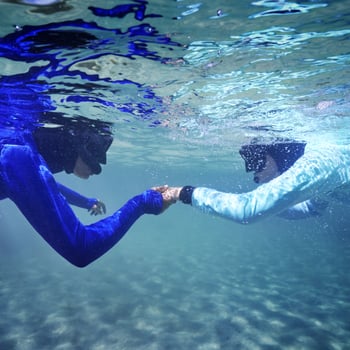
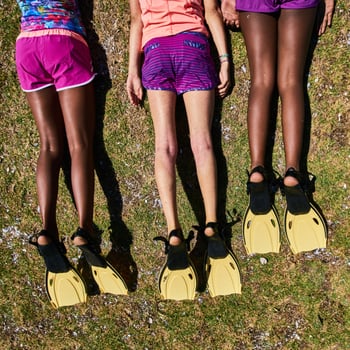

The work of I AM WATER includes building awareness for our oceans by sending experts to speak in classrooms and at conferences. They also advocate for the oceans by engaging in global policy and legislation discussion about the environment. But the ocean experiences, like the one Shireen and Gasina participated in, may be the most essential part of their work. The organization works in South Africa, Mozambique, and Bermuda to introduce disadvantaged children to their nearby oceans. Despite living close by, many have never been underwater. In Mozambique, for example, I AM WATER partnered with an orphanage to take children swimming and snorkeling in the waves right outside their doors.
I AM WATER has found success empowering girls. "The work we have done with girls from the townships around Cape Town and Durban has been remarkable," Hanli says. Thanks to the organization, girls who have never been to the beach or submerged in water have been able to shift their perception of themselves. By challenging some of their deepest fears and exploring the ocean, she finds they have new ideas about what life has to offer. Hanli says the program starts with with deep relaxation, yoga, and breathwork, to help participants slow down thoughts and strip away limiting assumptions and expectations. "Being more comfortable in their bodies, girls get to be more relaxed, more themselves."
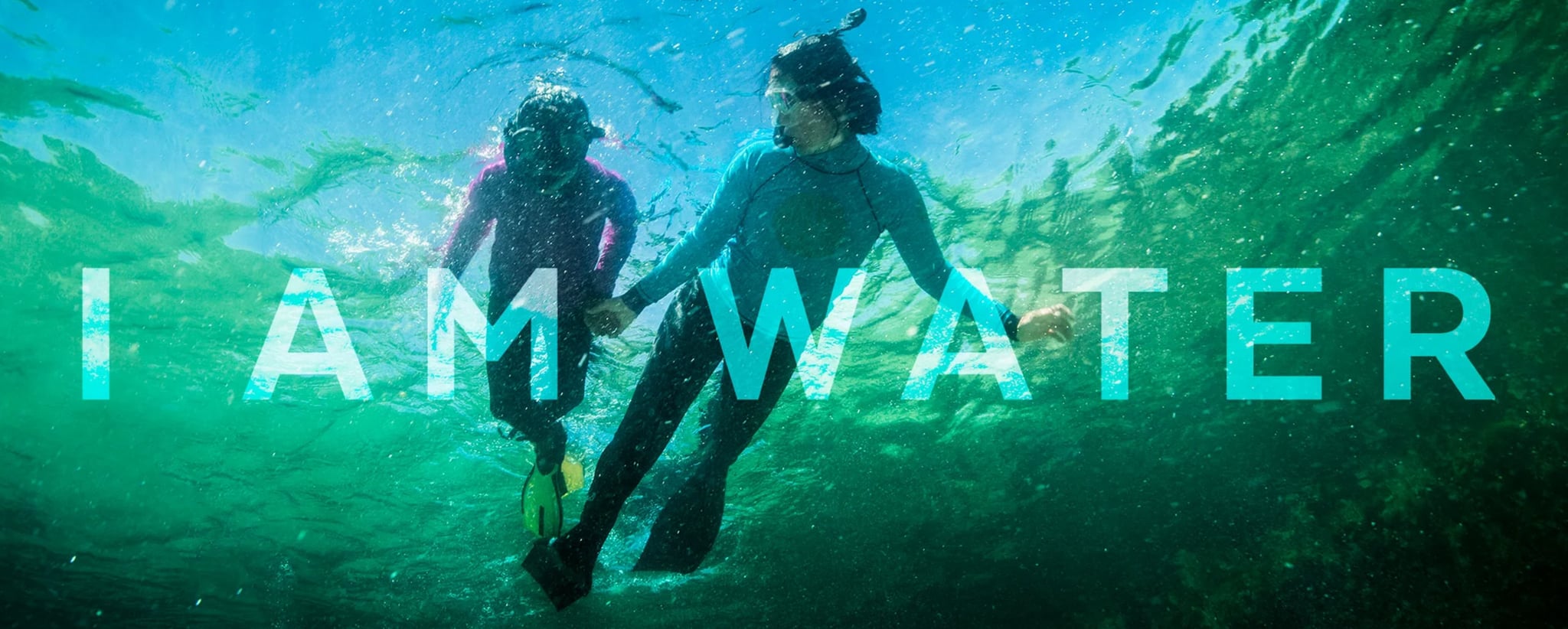
Hanli believes the teaching girls about the human body's remarkable adaptation to water, the incredible creatures that live in the sea, and how we are related to them opens a new sense of awe and inspiration and trust in their own abilities. After that preparation, the girls will finally put on a mask and fins and open their eyes underwater for the first time. Many of the participants are having an experience they thought was reserved for others. Here's how Hanli describes the transformation she witnesses: "We see girls standing up straighter, speaking up for themselves, daring to dream a little bigger. If I can do this, I can do anything."
What surprises people the most when they finally connect with the ocean? How much they love it. "Oftentimes there is such a great fear connected to being in the ocean, that when someone has that first moment in water, there is a deep sense of 'why haven’t I done this before!'" Even many non-swimmers experience a feeling of coming home.
The powerful benefits of water may be to thank for that. "The research done on the effect of water and the ocean on humans is fascinating," says Hanli. In the book, Blue Mind, marine biologist Wallace J. Nichols discusses the neurological, psychological, and emotional changes our bodies undergo when we're near water. "Time and time again," Nichols writes, "researchers have discovered that proximity to water strengthens the positive effects that environment has upon well-being."
Hanli is familiar with the research. She explains that since our brains are constantly fed new information, being close to a big body of water allows our minds a chance to experience something very predictable — the constant movement of the water and waves. This makes our brains slow down and we feel calmer. Being submerged adds a whole new level to this with regards to weightlessness, stillness, and being present. "I’ve experienced all of this," Hanli says, "and always feel like I am a better version of myself in or near the water."
Still barriers prevent many women and girls from connecting with the water. Many like Shireen grow up in households where the ocean is feared, and Hanli believes gender roles around the outdoors and adventure also limit many. "The boys are encouraged to be daring, try new things and explore, while the girls are held back, taught to be fearful and careful and limited in various ways." In underserved communities, Hanli says many girls are expected to help around the house while boys go out to play. "Taking care of younger siblings, cooking, fetching water — all of these things will be expected of a young girl more than boys."
Thriving as a Team
As a freediving champion, Hanli accomplished great things as an individual. But she has been able to thrive thanks to the I AM WATER community. Through them, she's learned that women are just like the water she loves so much. "We are not conquerors, we do not need to break the spirit of the oceans. We are strong enough to recognize great beauty and infinite power, to appreciate and cultivate, protect and share. We are like water." Hanli says if you look out at the sea, it does not want for anything. "Is she waiting for somebody's approval or allowance? In a time when we see so much questioning of a young woman's value, so much self-doubt and low self-esteem, it is vitally important that women are given this chance to see themselves in water."
Hanli credits other women in her life for helping create opportunities and platforms for her to speak for the ocean. She cites support from a renowned philanthropy adviser in Switzerland, a highly committed board member in New York who constantly sees possibilities, and her best friend, Annelie, who shares energy and ideas. "I am privileged to have women who believe in me and the vision of I AM WATER," she said. Thanks to this experience, Hanli is guided by an old saying: If you want to go fast, go alone. If you want to go far, go together.
